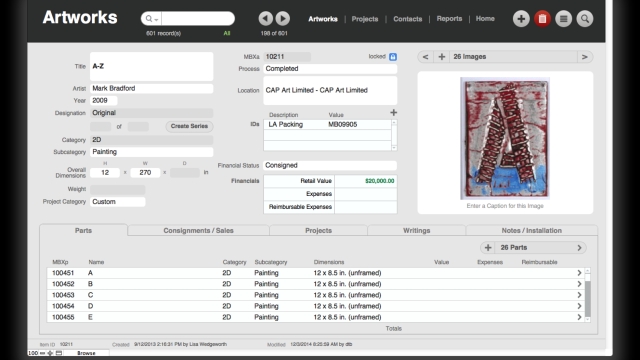
In today’s competitive landscape, businesses are constantly searching for effective strategies to keep their customers engaged and loyal. Retention marketing has emerged as a vital approach that focuses on maintaining strong relationships with existing clients rather than solely acquiring new ones. By employing targeted tactics and personalized communication, brands can significantly enhance customer satisfaction and encourage repeat purchases, ultimately leading to greater long-term success.
Data analytics plays a crucial role in shaping retention marketing decisions. With the ability to gather and analyze customer behavior, preferences, and feedback, companies can make informed decisions that tailor their marketing efforts to meet the specific needs of their audience. Agencies like Forge Digital specialize in leveraging these insights, enabling businesses to create meaningful connections and foster loyalty that drives sustained growth. By understanding the power of data, organizations can unlock the full potential of their retention strategies.
Understanding Retention Marketing
Retention marketing focuses on engaging existing customers to encourage repeat purchases and build long-term loyalty. It recognizes that acquiring new customers can be significantly more expensive than retaining current ones. By maintaining strong relationships with customers, businesses can enhance customer lifetime value and foster a sustainable revenue model. This approach is vital in today’s competitive landscape, where consumer expectations are constantly evolving.
One of the core elements of retention marketing is data analytics. By analyzing customer behavior, preferences, and feedback, businesses can gain insights that inform their retention strategies. This data-driven approach allows companies to segment their audience, personalize communication, and tailor marketing efforts to meet specific customer needs. Retention marketing is not a one-size-fits-all solution; it demands a keen understanding of the customer journey and engagement patterns.
Retention marketing
Retention marketing is also about creating a seamless experience across all touchpoints. From social media interactions to email campaigns, consistency plays a crucial role in reinforcing brand loyalty. By utilizing insights from data analytics, agencies like Forge Digital can help businesses design marketing campaigns that resonate with their audience and effectively address pain points. This strategic approach ensures that customers feel valued, ultimately leading to improved retention rates and a stronger brand reputation.
The Role of Data Analytics
Data analytics plays a pivotal role in shaping retention marketing strategies. By examining customer behavior, preferences, and engagement patterns, businesses can gain valuable insights into what keeps their customers coming back. This data-driven approach allows companies to identify their strengths and weaknesses and tailor their marketing efforts accordingly. Analyzing historical data also helps in predicting future customer behavior, enabling proactive measures to enhance retention rates.
With tools and techniques available today, such as segmentation and predictive modeling, companies can create personalized experiences that resonate with their audience. For instance, by segmenting customers based on their purchase history and browsing behavior, businesses can develop targeted campaigns that address specific needs. This not only improves customer satisfaction but also reinforces brand loyalty, creating a mutually beneficial relationship between the company and its customers.
Moreover, data analytics empowers companies to measure the effectiveness of their retention marketing efforts continuously. By tracking key performance indicators, such as customer lifetime value and churn rates, businesses can evaluate the success of their strategies in real-time. This ongoing analysis allows for timely adjustments and optimizations, ensuring that marketing efforts remain relevant and impactful, ultimately driving sustained customer retention over the long term.
Strategies for Effective Retention
To drive successful retention marketing, businesses must first understand their customers’ journey and behavior. Analyzing data from various touchpoints can reveal patterns in customer engagement and highlight areas where individuals may drop off. By utilizing insights gained from data analytics, companies can tailor their marketing strategies to address specific needs and pain points. This targeted approach not only enhances customer satisfaction but also fosters long-term loyalty, which is critical in a competitive market.
Another key strategy involves personalized communication. Leveraging data analytics allows businesses to segment their customer base effectively, identifying groups with similar behaviors or preferences. By crafting personalized messages, promotions, and recommendations, companies can create a more meaningful connection with their customers. This approach not only increases the likelihood of repeat purchases but also encourages customers to become advocates for the brand, further enhancing retention efforts.
Finally, businesses should prioritize continuous feedback and engagement with their customers. Establishing channels for customers to share their thoughts and experiences can provide invaluable insights that drive improvements in products and services. Regularly analyzing this feedback enables businesses to adapt their strategies proactively, ensuring that they meet customer expectations and nurture loyalty. By implementing these strategies, companies can create a robust retention marketing framework that stands the test of time.
Measuring Success in Retention Marketing
Effectively measuring success in retention marketing is crucial for understanding the impact of your strategies. Metrics such as customer retention rate, churn rate, and lifetime value provide insights into how well your retention efforts are performing. A high retention rate indicates that customers are satisfied and engaged, while monitoring churn rates helps identify issues that may need addressing. Additionally, calculating the lifetime value of a customer helps to gauge the long-term benefits of maintaining relationships with your clients.
Data analytics plays a key role in measuring these metrics accurately. Tools that analyze customer behavior enable businesses to segment their audience, allowing for targeted marketing efforts tailored to each group’s preferences. By leveraging insights from data, companies can identify trends and patterns in customer interactions, helping to refine retention strategies. This approach ensures that marketing investments are focused on the tactics that yield the greatest returns.
Ultimately, success in retention marketing is about continuous improvement. Regularly reviewing and analyzing your retention metrics allows your team to adapt and evolve your strategies based on what the data reveals. By keeping tabs on customer feedback, engagement levels, and satisfaction scores, marketing teams can make informed decisions that enhance the overall customer experience and foster long-term loyalty. Using a data-driven approach ensures that your retention marketing decisions are grounded in reality, leading to stronger relationships with customers.



